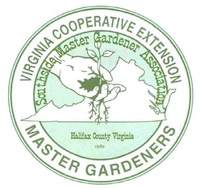The Southside Master Gardener Association is honored to present Kevin Conrad, Curator of Woody Landscape Plant Germplasm Repository at the US Arboretum on Friday, October 13 from 12:30 to 2:30 p.m. at the South Boston – Halifax County Museum to discuss “Native Trees and Shrubs in the Landscape”. The program is free and the public is encouraged to attend. Please email ask@ssmga.org or call the Halifax Extension Office at 434-476-2147, option 0 to make a reservation.This winterberry holly is a colorful example of what native trees and shrubs in the landscape. Come to the South Boston – Halifax County Museum on October 13th at 12:30 p.m. to hear a discussion about these wonderful plants and the benefits to your garden.
Conrad will focus his talk on native species of trees and shrubs in Virgini
a that work in our landscapes. What makes native plants so special? They evolved with the local ecosystem and are mutually supportive. This means that deer don’t find them attractive and they support many types of beneficial insects and birds. But importantly, they are beautiful additions to our gardens.
In his very informative book Bringing Nature Home, Doug Tallamy explains the importance of native plants in our landscapes. Alien species, such as Lagerstroemia Crape Myrtle and Hybrid Tea Roses are mainstays in our Southern gardens but they do not support insects. Herbivore insects, Tallamy explains, will only feed on plants with which they coevolved. You may say, fine, I don’t want bugs anyway. Only 1% of the millions of insect species are considered pests. Insects can survive without us but we cannot survive without them. Without pollination we wouldn’t have fruit and vegetables. Almost all birds feed insects to their young. Insects also chew on dead plant material and return nutrients to the soil, help aerate the soil and also consume pest species. Remember that butterflies are insects.
Convincing you that birds are fun to have around is probably an easier task than convincing you that insects are important. One never forgets the beauty of seeing their first Eastern Bluebird. My husband and I spend much time on our porch enjoying the antics of the Ruby-Throated Hummingbirds. By the way, they love to munch on mosquitoes. The call of the Rain Crow, the Yellow-Billed Cuckoo, is a signal that rain is on its way.
These are reasons to consider native plants and Conrad will show us which ones work well in our landscapes. A favorite of mine is Winterberry Holly, Ilex verticillata, with its bright red berries that the bluebirds love to feast on throughout the winter. Familiar to most of us is our state flower Flowering Dogwood, Cornus florida, a favorite of Thomas Jefferson. Redtwig Dogwood, Cornus sericea, provides winter interest with its brilliant red twigs, as the name suggests. Off the back deck is an American Beautyberry, Callicarpa americana, with its flashy purple berries. These plants look right at home in my garden.
So join the Master Gardeners on October 13th 12:30 p.m. as Conrad will discuss other native species that are good for our landscapes. The museum is located at 1540 Wilborn Avenue in South Boston. Please email ask@ssmga.org or call the Halifax Extension Office at 434-476-2147, option 0 to make a reservation. Visit www.ssmga.org for more information about the Master Gardeners and their programs.

